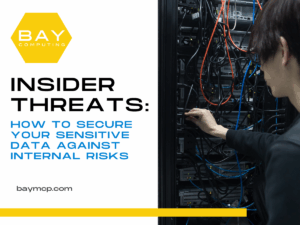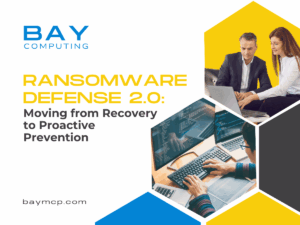HIPAA Healthcare IT: Protect Patient Privacy
Keeping private health information safe is one of the top goals in HIPAA healthcare IT. HIPAA, or the Health Insurance Portability and Accountability Act, sets clear rules for protecting patient data and making sure that only authorized people can see or share it. HIPAA helps make sure patient privacy is respected and their sensitive health details are kept secure.
Healthcare organizations must follow these national standards in their technology systems and day-to-day routines. This includes managing electronic records, securing systems that store data, and training staff on privacy rules. For anyone who works with patient information, knowing about HIPAA and its privacy requirements is essential in today’s digital healthcare world.
Ignoring these rules can bring serious risks, including legal penalties and loss of trust between patients and providers.
HIPAA Healthcare IT Compliance
HIPAA sets strict rules on handling and protecting patient health information. Healthcare organizations and IT systems must meet these rules to ensure patient data stays confidential and secure.
Understanding HIPAA Regulations
HIPAA, or the Health Insurance Portability and Accountability Act of 1996, created standards to guard patient information. These laws apply to healthcare providers, insurance companies, and others who use or share personal health data. Violating HIPAA can result in heavy fines or legal action.
Covered entities, like hospitals and clinics, must follow rules for storing and sharing health records. They also need to make sure their staff is trained on privacy best practices.
Core Principles of Patient Privacy
The privacy rule is one of the main parts of HIPAA. It gives patients rights to see and control their own health information. Only people who need to use a patient’s data for treatment, payment, or health operations can access it.
HIPAA stresses the need to protect information from being shared with those who do not have permission. Staff must only access or share patient data when needed for care or business operations. This rule helps avoid unauthorized use or disclosure of sensitive details.
Key Requirements for IT Systems
Healthcare IT systems must meet certain requirements to stay HIPAA compliant. This includes strong data encryption, secure user logins, and regular security updates. Systems need to monitor and log access to health records so that any unlawful activity can be tracked quickly.
IT departments have to make sure data is both private and available to those who have a right to see it. They must also be ready with a plan to handle breaches if information is leaked or lost.
Common Requirements for HIPAA-Compliant IT Systems:
| Requirement | Description |
|---|---|
| Data Encryption | Protects patient info during storage and transfer |
| Access Controls | Limits who can view or edit records |
| Audit Logs | Tracks access, changes, or deletions |
| Breach Response Plan | Steps for handling data leaks or breaches |
Best Practices for Protecting Patient Privacy
Protecting patient information in healthcare IT systems is required by law and crucial for maintaining trust between providers and patients. Strong safeguards are needed to prevent unauthorized access, data theft, and accidental data leaks.
Data Encryption and Security Measures
Data encryption should always be used to protect patient records both when they are being stored and when they are being shared electronically. By turning sensitive information into unreadable code, encryption blocks unauthorized users from accessing patient health information if the data is lost or stolen.
Healthcare organizations should require the use of strong encryption standards, such as AES-256, for all files containing protected health information (PHI). Secure networks help prevent interception by hackers during transmission. Firewalls, antivirus software, and ongoing system updates are also critical parts of a solid security setup.
Routine security assessments help find and fix weaknesses quickly. Organizations should keep detailed audit logs to track all attempts to access or change sensitive information. This transparency helps identify risks early and supports compliance with HIPAA regulations.
Access Controls and Authentication
Limiting who can access PHI is central to strong patient privacy protection. Access controls restrict sensitive data to only those staff who need it for their job duties. Healthcare systems should assign unique IDs to every user and require strong, frequently changed passwords.
Multi-factor authentication (MFA) is also important. It adds a second layer of security, such as a text message code or authentication app, making it far more difficult for hackers to enter the system even if a password is stolen. Role-based access further limits exposure by ensuring staff can only see records relevant to their work.
Inactive user accounts and former staff accounts should be removed as soon as possible. Monitoring who logs in and what they do with patient data can help spot suspicious activity early.
Employee Training and Awareness
Regular training is necessary to ensure all staff understand their responsibilities under HIPAA and know how to keep patient data safe. Training should cover topics like identifying phishing emails, handling sensitive information, proper disposal of documents, and current policies on using electronic devices.
Ongoing education helps keep privacy top of mind. Posting privacy rules in visible places and having an open dialogue make it clear that everyone is responsible for protecting PHI. Designating a privacy officer to oversee and update privacy practices helps maintain high standards and ensures procedures are followed.
Training should be repeated yearly and when rules or technology change. Staff should know how to report possible privacy breaches quickly so organizations can respond right away.
Stay HIPAA Compliant & Protect Your Patients’ Privacy
Partner with Bay Computing for Expert Healthcare IT Solutions
Protecting patient data isn’t just about compliance—it’s about trust. At Bay Computing, we help healthcare providers meet HIPAA requirements with secure, reliable IT services tailored to your needs. From encrypted networks and access controls to staff training and breach response planning, we deliver end-to-end support that keeps your practice secure and compliant.
Avoid costly fines and safeguard your reputation with proven, healthcare-focused IT services. Contact us now!




